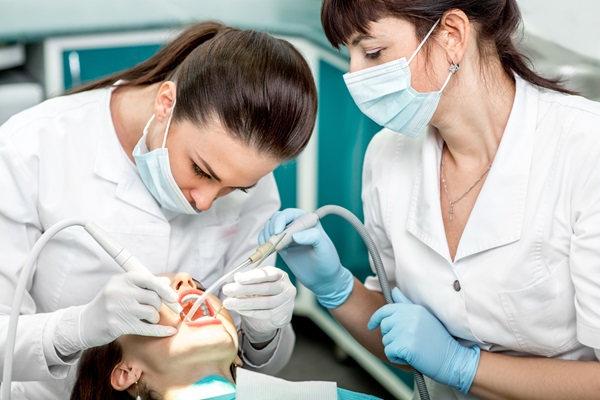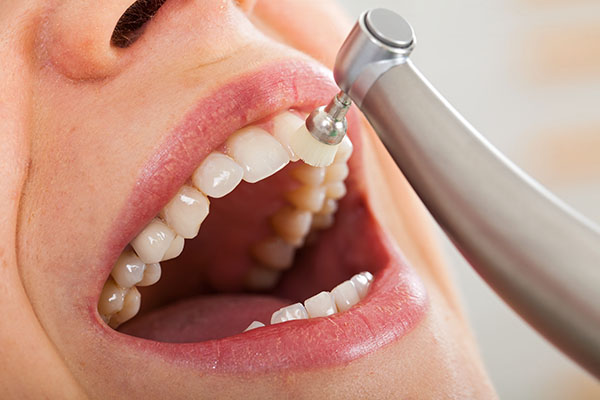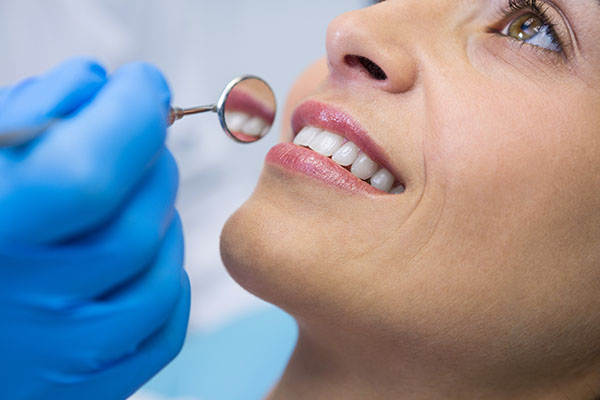Dental Cleaning and Bad Breath

Dental hygiene and fresh breath go hand in hand, and for many patients, a regular dental cleaning is a crucial part of their oral care routine to have healthy teeth and gums and avoid bad breath, or halitosis.
Things to know about dental cleanings and bad breath
In this article, we delve into dental cleaning and its relationship with bad breath. We explore how routine dental cleanings can help keep the breath fresh, offer tips on maintaining oral hygiene at home, and discuss when persistent bad breath may warrant further investigation. Let us address the common concerns about dental cleanings and how having breath that is healthy and pleasantly fresh can affect patients' confidence.
1. Can regular dental cleanings help prevent bad breath?
Regular dental cleanings can significantly help prevent bad breath. Halitosis often stems from the accumulation of bacteria in the mouth. During a professional cleaning, the hygienist thoroughly cleans the teeth and removes built-up plaque and tartar. These deposits are prime breeding grounds for bacteria that produce foul-smelling compounds. By eliminating these bacteria and their habitats, dental cleanings help combat bad breath.
Dental cleanings are not only about cleanliness, but they also contribute to oral health. Removing surface stains and bacteria-laden deposits can brighten the smile and lessen the risk of dental issues that may contribute to halitosis. Dental professionals have the tools and expertise to address the root causes of bad breath, ensuring a fresher and healthier mouth.
2. What can I do at home to maintain fresh breath between dental cleanings?
Patients should practice good oral hygiene at home to maintain fresh breath between dental cleanings. The following steps can help patients keep their breath smelling pleasant:
- Brushing: Brush the teeth at least twice a day using fluoride toothpaste. Give attention to all surfaces of the teeth, including the fronts, backs, and tops. Doing so helps remove plaque and food particles that bacteria feed on.
- Tongue Cleaning: Clean the tongue regularly using a tongue scraper or a toothbrush. Bacteria can accumulate on the tongue's surface and contribute to bad breath.
- Flossing: Floss daily to remove plaque and food particles from between the teeth, as a toothbrush may not reach these effectively.
- Hydration: Drinking plenty of water helps keep the mouth moist and reduces dry mouth, a common cause of bad breath.
- Sugar-Free Gum: Chewing sugar-free gum stimulates saliva production, washing away bacteria and neutralizing acids in the mouth.
- Mouthwash: Antibacterial mouthwash can help kill bacteria that cause bad breath. Choose a mouthwash that is alcohol free and designed to fight halitosis.
If a patient maintains these practices, they will be well on their way to keeping their breath fresh and their mouth healthy between dental cleanings.
3. When should I be concerned about persistent bad breath despite regular dental cleanings?
Despite regular dental cleanings and good oral hygiene practices, persistent bad breath may indicate an underlying dental or medical issue. If a patient notices that their bad breath does not improve, they should consider the following:
- Dental Issues: Gum disease, tooth decay, or oral infections can contribute to bad breath. The dentist can identify these problems during a regular check-up and provide treatment.
- Systemic Conditions: Certain medical conditions, such as respiratory infections, diabetes, or gastrointestinal issues, can lead to chronic bad breath. Medications and systemic diseases can sometimes cause dry mouth, exacerbating the problem.
If a patient continues to experience persistent bad breath, they should consult with their dentist or a healthcare professional, who can help identify and address the root cause, whether it is dental, medical, or medication related.
Addressing the underlying problem is essential for long-term relief from bad breath. The healthcare provider can recommend appropriate treatment or refer the patient to a specialist if necessary.
4. Are there specific foods or drinks that can contribute to bad breath, even after a dental cleaning?
Certain foods and beverages can contribute to bad breath, even after a dental cleaning. Foods like garlic, onions, and certain spices contain compounds that can produce strong odors when digested and then released into the bloodstream, eventually affecting the breath. Additionally, acidic and sugary foods can contribute to the growth of bacteria in the mouth, which can lead to bad breath.
Are you due for your next dental cleaning?
We recommend dental cleaning every four to six months. This helps prevent problems from arising and allows you to address any oral health issues (i.e., bad breath) before they worsen. Call us today to schedule your next dental cleaning.
Request an appointment here: https://www.foundersdental.com or call Founders Dental at (720) 893-7362 for an appointment in our Castle Rock office.
Check out what others are saying about our dental services on Yelp: Dental Cleaning in Castle Rock, CO.
Recent Posts
Visiting the dentist for a checkup and dental cleaning is not something that most people anticipate cheerfully. Continue reading to learn about the importance of dental cleanings. The well-being of your teeth, mouth, and gums will be jeopardized if you skip your bi-annual dentist appointments. Going in for a checkup and cleanings twice a year…
Have a dental cleaning appointment coming up? Read on to learn about what to expect. Every patient may have a unique experience with their dental cleaning depending on the status of their oral health and the preferred process of the dentist or hygienist that performs the cleaning. However, there are certain steps that are to…
There are generally no preparations that are required for a dental cleaning. However, there are certain things that you can do to help ensure the visit goes well. This is particularly useful for patients that may have dental anxiety or not know what they should expect for the visit.The best ways to prepare for dental…
The lingering rule about dental cleaning is that it should be done twice every year. This is what dentists tell their patients to maintain good oral health. Because of busy schedules, you often get a phone call to remind you to come back for your next teeth cleaning. The reminder often leads many patients to…


